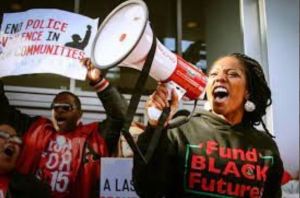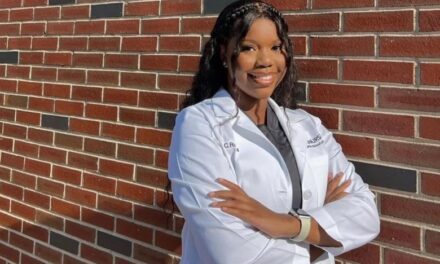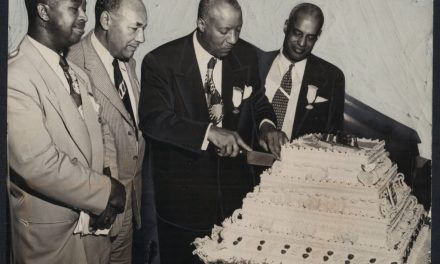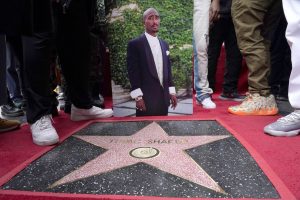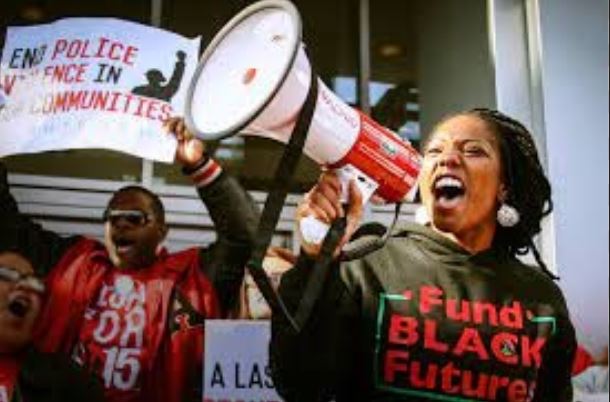
By Nadine Matthews
Special to the AFRO
Perhaps nothing symbolizes Janae Bosu’s growth more than the fact that she earned her Ph.D by the end of the four years during which the documentary Unapologetic was shot. Specifically, Unapologetic, now streaming on PBS as part of its POV series, chronicles the evolution of Bosu and another social activist, Bella Bahhs, as they blossom from fledgling, to mature activists.
This is fitting because the film, directed by Ashley O’Shay, also aims to begin fixing historical “slights” that have largely written Black female leadership out of the history of social movements, relegating them mainly to supporting characters. “The film,” Bosu stated in an interview with the AFRO, “is about Black women’s leadership in social movements.” Bosu represents the new generation of activists around areas of gender and race.
Bosu’s bona fides were earned during the Black Lives Matter movement, which was catalyzed by a series of high profile deaths at the hands of law enforcement, including Michael Brown, Freddie Gray, Philando Castile, and Laquan McDonald in the twenty-teens. The latter death occurred in Chicago, where Unapologetic finds its two powerful, charismatic subjects, Baahs and Bosu.
There was another death at the hands of police that occurred before those mentioned above, but it failed to garner the national mainstream attention they did. 22-year-old Chicagoan Rekia Boyd was shot and killed as she hung out with friends at a Chicago park. Finding justice for Boyd fueled Bosu’s determination, as she worked with Black Lives Matter and influenced Bosu’s subsequent shift in focus to primarily Black women and girls, though she emphasizes, “I’m for the liberation of all Black people.”
Bosu got her Ph.D in social work from the University of Illinois Chicago. She’s now director of research and advocacy for the National Black Women’s Justice Institute, a research think tank Bosu explains is, “by and for Black women and girls, working to end the criminalization of Black women and girls.” She further stated, “Everything that you see in the film around centering, protecting, and fighting for Black women, I am continuing to do in my work.”
The example of Rekia Boyd is emblematic of Black female experience where, said Bosu, “Black women’s voices and actions are too often not heard or represented.” Though the deaths of Black men and boys like Trayvon Martin, Michael Brown and Freddie Gray held a vice grip on news cycles, websites, and papers for months, the deaths of women like Sandra Bland and Rekia Boyd did not. Bosu’s work attempts to correct that imbalance in the same way that the film attempts to cover the imbalance in coverage of Black women leaders.
Bosu admits part of the reason is because historically, Black men have been targeted more.”If we’re talking proportionately, more Black men are being killed by police, so there’s much less attention, care and outrage when a Black woman is also shot, or sexually assaulted by the police, or other Black men,” Bosu said.
But the slight differences in the way society treats Black women compared to Black men, is becoming increasingly slim, while simultaneously diverging from the treatment of White women. Bosu informs us that “Black women are the fastest growing population of people who are incarcerated.”
Some of the reasons are rooted in structural racism and similar to the reasons why young Black men and boys are shuttled into the criminal justice system at alarming rates. “Many people outside of Black women are socialized to see us as aggressors and incapable of victimization,” explained Bosu. “For example, many Black women who have been sexually assaulted, are in jail for defending themselves. Mandatory arrest laws have been shown to disproportionately impact Black women compared to White women.”
Bosu terms the way that violence toward Black women is often overlooked by society “invisibilization.” This falls under another umbrella term, “misogynoir,” coined to describe Black women’s particular experience of racism, anti-Blackness, and sexism simultaneously.
She urges others, particularly Black men, to learn to be more sensitive and active when it comes to Black women’s issues, in the same way that Black women often are for them. “Black men in particular can learn a thing or two from us about what it means to show up for each other,” stated Bosu.
Ultimately, Bosu said, she hopes to create “a world where Black women feel safer and a little bit freer of the violence that we face in our homes, our communities, and institutions, meant to serve and protect us but often harm us.”
Help us Continue to tell OUR Story and join the AFRO family as a member – subscribers are now members! Join here!
The post PBS’ ‘Unapologetic’ spotlights new generation of Black women activists appeared first on AFRO American Newspapers .

